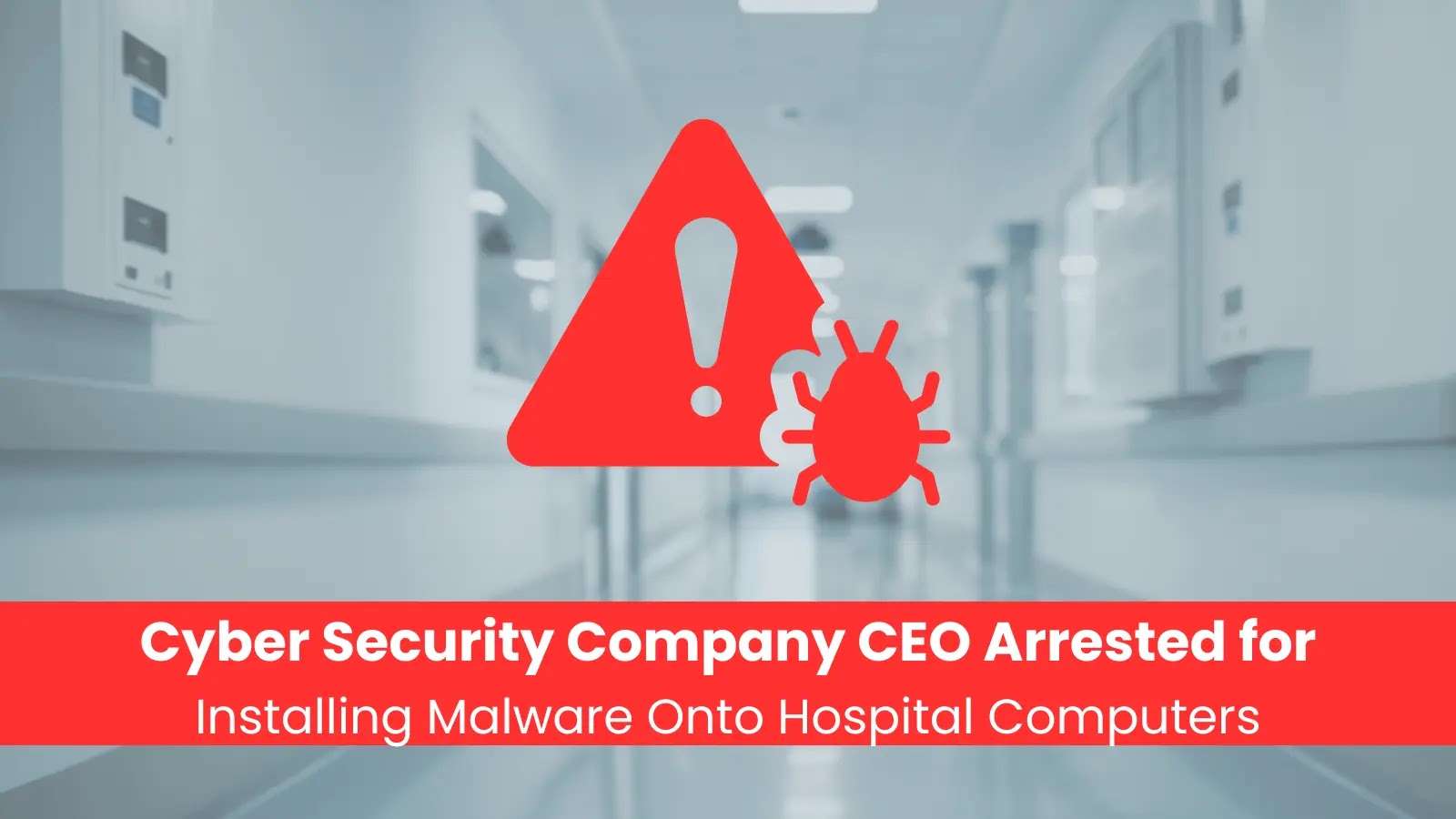Cybersecurity CEO Arrested After Hospital Malware Scandal What Really Happened?
You’d expect the CEO of a cybersecurity firm to protect systems from hackers not be the hacker. But that’s exactly what authorities are accusing Jeffrey Bowie, founder of Veritaco, of doing. In a bizarre twist, Bowie was arrested last month for allegedly sneaking into an Oklahoma City hospital and installing malware on employee computers.
This isn’t some shadowy hacker in a basement. Bowie was a trusted industry professional with years of experience. So how did he end up in handcuffs? And what does this mean for hospitals already struggling with cyber threats?
The Day Everything Went Wrong
It started on August 6, 2024, at St. Anthony Hospital a major medical center with hundreds of beds and a reputation for top-tier care. Security footage shows Bowie, dressed in casual clothes, walking through restricted areas. He tried several offices before settling at two unattended computers.
Here’s where things get sketchy.
Instead of just checking email or browsing the web (like a normal visitor might), he allegedly installed malware designed to take screenshots every 20 minutes and send them to an external server. That’s the kind of move you’d expect from a cybercriminal, not a guy who literally ran a security company.
When a hospital employee spotted him and asked what he was doing, Bowie reportedly claimed he had a relative in surgery and needed to use the computer. But staff weren’t buying it especially since he was in a restricted area.
The Aftermath: How the Hospital Caught Him
St. Anthony’s IT team wasn’t messing around. They ran a full forensic scan and found the malware, along with evidence that Bowie was the one who put it there. The hospital insists no patient data was stolen, but the breach could’ve been disastrous.
In a statement, SSM Health (the hospital’s parent organization) said:
“We take security seriously. Thanks to our protocols, we caught this immediately and stopped any potential damage. We’re grateful to our staff for their quick response.”
Meanwhile, Bowie’s LinkedIn paints a confusing picture. His company, Veritaco, claims to specialize in “elite cybersecurity and digital forensics.” Before that, he worked as a Senior Cyber Security Engineer at High Point Networks. So why would someone with his background risk everything to hack a hospital?
The Bigger Problem: Insider Threats Are Everywhere
This case isn’t just about one guy making bad choices. It’s a wake-up call for every business especially hospitals.
-
Hospitals are gold mines for hackers. Patient records, insurance details, and even surgical schedules can be sold on the dark web.
-
Insiders are the biggest risk. Employees (or contractors) with access can bypass security easier than an outside attacker.
-
Cybersecurity experts aren’t always the good guys. Sometimes, they’re the ones breaking the rules.
If a cybersecurity CEO can allegedly pull this off, what’s stopping others? Hospitals need better monitoring, stricter access controls, and a zero-trust approach even for people who seem trustworthy.
What’s Next for Bowie?
Oklahoma doesn’t play around with computer crimes. If convicted, Bowie could face:
-
Up to 10 years in prison
-
Fines between 5,000and100,000
-
A permanent stain on his reputation
The FBI is still investigating, so more details could come out. Was this a one-time bad decision? Part of a bigger scheme? Right now, nobody knows.
But one thing’s clear: In the world of cybersecurity, sometimes the biggest threat isn’t some anonymous hacker it’s the person you least suspect.
Discover more from CyberAwareHub
Subscribe to get the latest posts sent to your email.

